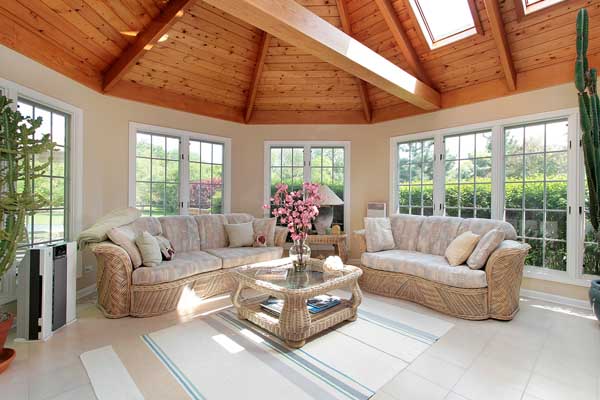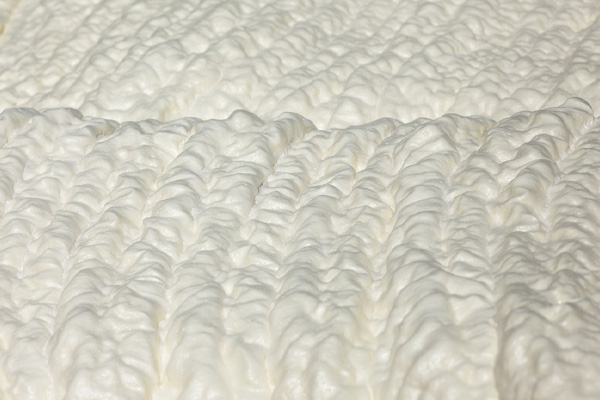Should You Insulate Your Sunroom In Colorado?

Efficient insulation is essential to maintain a comfortable temperature in your sunroom throughout the year. During winter, insulation retains the warm air inside; during summer, it prevents the sun’s heat from entering. If you want to enhance the comfort level of your sunroom, continue reading for guidance on insulating it and the type of sunroom insulation to use. By investing some effort, you can transform your sunroom into a comfortable hideaway all year.
What is a Sunroom?
Contents
A sunroom, also known as a solarium or a conservatory, is a room in a house designed to allow a lot of natural sunlight. Sunrooms are typically built with large windows or glass walls and roofs that let in as much sunlight as possible, creating a bright and airy space. The purpose of a sunroom is to provide an indoor space that feels like being outdoors. This will allow people to enjoy natural light and the beauty of their surroundings while still being protected from the elements. Sunrooms are often used as a living space, a dining area, a home office, or a place to grow plants.
Related Article: Why Is Insulation Important In Fort Collins, CO Homes?
Three Season Vs. Four Season Sunrooms

Sunrooms offer a wonderful way to relish the outdoors without being bothered by bugs, inclement weather, or pollen. However, before starting construction of your sunroom, it is crucial to know the difference between a three-season and a four-season sunroom.
Purpose and Usage
- Three-Season Sunrooms: Three-season rooms are designed to be used during the spring, summer, and fall seasons when the weather is mild. They typically do not have insulation or heating/cooling systems installed and are not designed to be used in extreme weather conditions.
- Four Season Sunrooms: These are designed to be used year-round, regardless of outside weather conditions. They are fully insulated and often have heating and cooling systems installed to ensure a comfortable temperature throughout the year.
Materials Used
- Three-Season Sunrooms: These are typically made of lightweight materials such as aluminum, vinyl, or wood, with single-pane glass windows. They are not as heavily insulated as four-season sunrooms.
- Four Season Sunrooms: These are typically made of more substantial materials such as wood, vinyl, or aluminum, with double-pane insulated glass windows. They are heavily insulated to ensure energy efficiency and to provide a comfortable living space all year round.
Related Article: Do-It-Yourself Insulation Problems: 6 Things That Lead To DIY Nightmares
Cost
- Three-Season Sunrooms: These are generally less expensive to build than four-season sunrooms, as they do not require the same level of insulation, heating/cooling systems, or structural reinforcement.
- Four-Season Sunrooms: These are generally more expensive to build than three-season sunrooms, as they require more materials and more extensive construction to ensure they can be used comfortably year-round.
Importance of Keeping a Sunroom at a Comfortable Temperature Year-Round
Adding insulation to your sunroom is an excellent method to improve energy efficiency and reduce expenses. During winter, insulation can effectively retain warm air and prevent it from leaking through doors and windows. It can also prevent heat from entering the sunroom during summer, maintaining a comfortable temperature. With enhanced comfort all year round, you will be able to enjoy your sunroom more frequently.
Related Article: Can Spray Foam Insulation Prevent Water Damage In Fort Collins?
Types of Insulation for Sunrooms

Several types of thermal insulation can be used for sunrooms, depending on the specific needs and budget of the project. Here are some common options:
- Fiberglass insulation: This is a common and relatively inexpensive option for sunrooms. Fiberglass insulation is made from spun glass fibers and is available in batts or rolls that can be fitted between wall studs or ceiling joists. It is also available in a loose-fill form for blown-in applications.
- Spray foam insulation: This is a more expensive option, but it provides excellent insulation and can help to prevent air leaks. It is applied as a liquid that expands to fill gaps and crevices, creating a seamless barrier against heat loss or gain.
- Rigid foam insulation: This type of insulation is a good choice for sunroom walls and roofs, as it provides high levels of insulation while taking up minimal space. Rigid foam insulation comes in sheets that can be cut to fit between studs or placed on the outside of walls.
- Cellulose insulation: This eco-friendly option is made from recycled paper products treated with chemicals to resist fire and insects. Cellulose insulation is available in a loose-fill form for blown-in applications.
- Reflective insulation: This type of insulation is designed to reflect radiant heat rather than absorb it. It consists of a layer of foil or other reflective material installed inside or outside the sunroom’s walls or roof.
- Insulated glass: Sunrooms are often made primarily of glass, so choosing insulated glass can significantly improve the space’s energy efficiency. Insulated glass consists of two or more panes separated by an air or gas-filled space, which helps reduce heat transfer through the glass.
How to Insulate a Sunroom
Insulating a sunroom will depend on several factors, such as the type of sunroom you have, the materials used, and your climate. Here are steps you can follow to insulate a sunroom:
- Assess the current insulation: Check if your sunroom already has insulation. If it does, determine if it needs replacing or adding to it.
- Identify areas of heat loss: Look for areas where heat may escape, such as around windows, doors, and the roof. You can use an infrared thermometer to detect heat loss.
- Choose insulation material: Select an appropriate insulation material for your sunroom. For example, fiberglass batt insulation is commonly used, but spray foam insulation can also be an option.
- Insulate the walls: Install insulation between the wall studs. If your sunroom has a finished interior, you can add insulation by drilling holes in the wall and blowing in loose-fill insulation.
- Insulate the ceiling: Install insulation between the ceiling joists. If your sunroom has a flat roof, you can install insulation on top of the roof deck.
- Insulate windows and doors: Install weatherstripping around windows and doors to prevent air leaks. You can also install insulating window film or thermal curtains to help retain heat.
- Consider heating and cooling options: Depending on your climate, you may need to install a heating and cooling system to maintain a comfortable temperature in your sunroom.
Related Article: Does Spray Foam Insulation Absorb Water?
Conclusion
Keeping sunrooms properly insulated is essential to maintain comfortable temperatures throughout the year and save on energy costs. While DIY insulation may seem viable, hiring a professional insulation service to ensure the job is done correctly is always more efficient and effective. Professional insulation services have the necessary tools, materials, and expertise to insulate sunrooms properly, providing a long-lasting solution that can save you money in the long run. So, if you want to keep your sunroom comfortable and energy-efficient, hire a professional insulation service to get the job done right.
Sunroom Insulation Services In Fort Collins CO
If you are considering air sealing or upgrading your home’s insulation, it is best to seek professional guidance. However, not all professionals offer the same level of quality and pricing. Always make sure you work with the best professionals available in your area. Fortunately, residents of Fort Collins and nearby areas can turn to Ascend Construction for top-notch service.
At Ascend Construction, we specialize in insulation removal and installation, air sealing, energy conservation, energy audits, whole-house fan installations, and more. We’re confident that our service stands out from the rest.

For a free consultation with our experts, get in touch with Ascend Construction today. Our team can offer practical solutions to address any problem areas in your Fort Collins home. We guarantee affordable pricing and high-quality work. Click here to contact us, or call us using the button below. We offer free, no-obligation, in-home consultations.
Ascend Construction
4115 County Road 19
Fort Collins, CO, 80524
(970) 420-5495